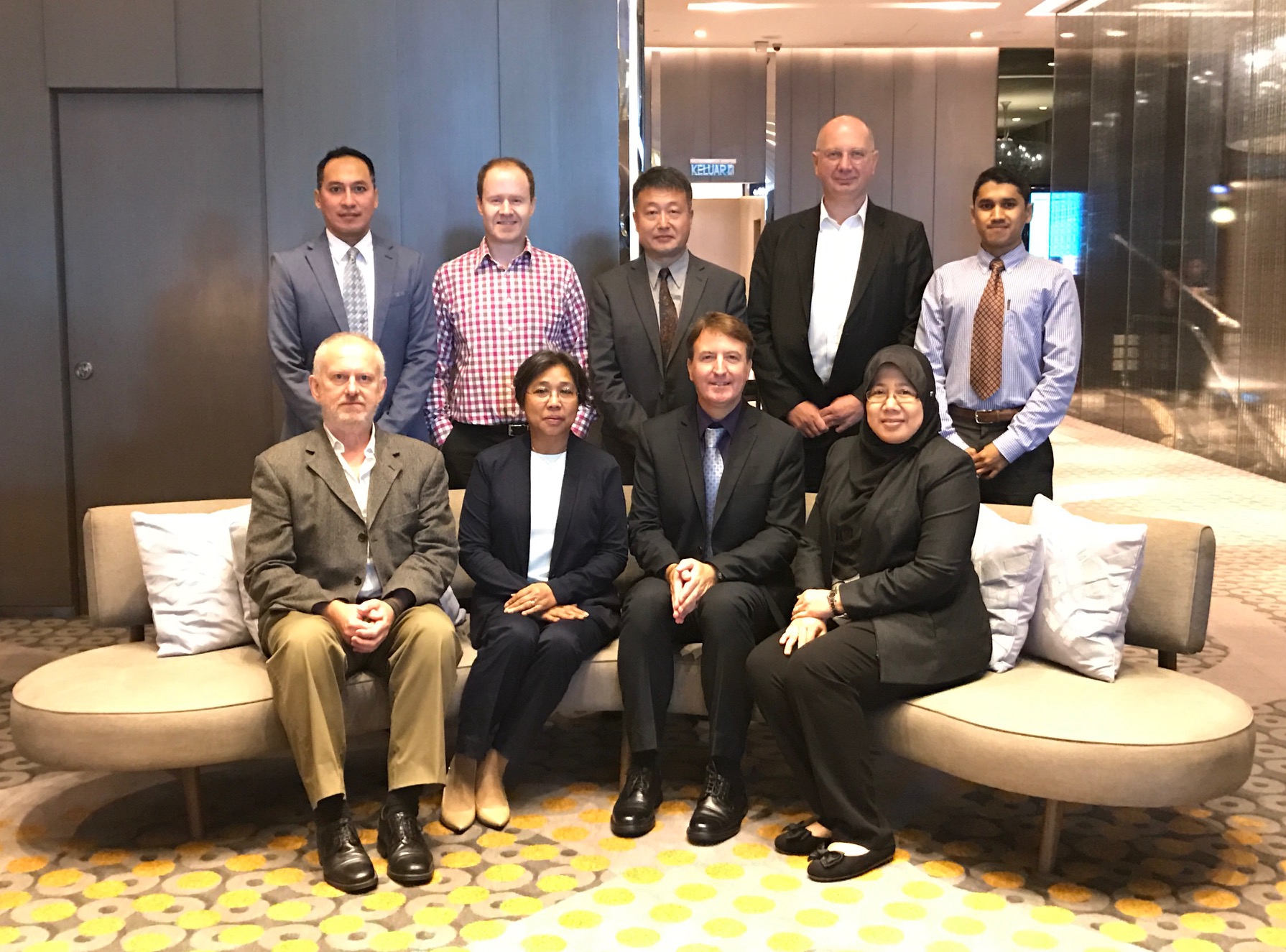On May 10, 2017, Prof. JIA Gensuo from CAS Institute of Atmospheric Physics was appointed by International Council for Science (ICSU) Executive Director Heide HACKMANN, on behalf of the Executive Board to serve as a Member of ICSU Regional Committee for Asia-Pacific (RCAP), one of its three regional committees globally. The 9-member regional committee is established and appointed by ICSU, and hosted by Malaysian Academy of Sciences based in Kuala Lumpur. Current committee members are from the Philippines (committee chair), South Korea, China, Indonesia, Japan, Thailand, New Zealand, Mongolia, and Singapore. All committee members are asked to serve in their individual capacity, for three years in the first instance, and Prof. Jia’s proposed term of appointment is 2017-2019.

JIA Gensuo (third from left in the second row) attended a meeting of RCAP Steering Committee on Disaster Risk Reduction in April 2017.
ICSU is a non-governmental organisation with a global membership of national scientific bodies (122 Members, representing 142 countries) and International Scientific Unions (31 Members). ICSU has three Regional Offices, Africa, Asia and the Pacific, and Latin America and the Caribbean. The ICSU Regional Committees decides on the overall strategy, policy and programme activities for the ICSU Regional Offices, guided by the ICSU Strategic Plans and other guidance the ICSU Executive Board wishes to provide. The ICSU Regional Committees are expected to promote the objectives and functions of the ICSU Regional Office and promote increased participation of developing country scientists and regional scientific organizations in the implementation of the ICSU Strategic Plans. The committee is also responsible for prioritizing key research schemes and programs, which currently includes renewable energy, ecosystems, natural disaster risks, and urban health and welfare.
Prof. JIA is the deputy director of the CAS Key Lab of Regional Climate-Environment for East Asia. He currently leads the Earth Observation of Climate Change Group. The Group is dedicated to understanding climate, ecosystems, and land-atmosphere interactions through the use of field experiments, satellite remote sensing, airborne missions, modeling, and synthesis.
